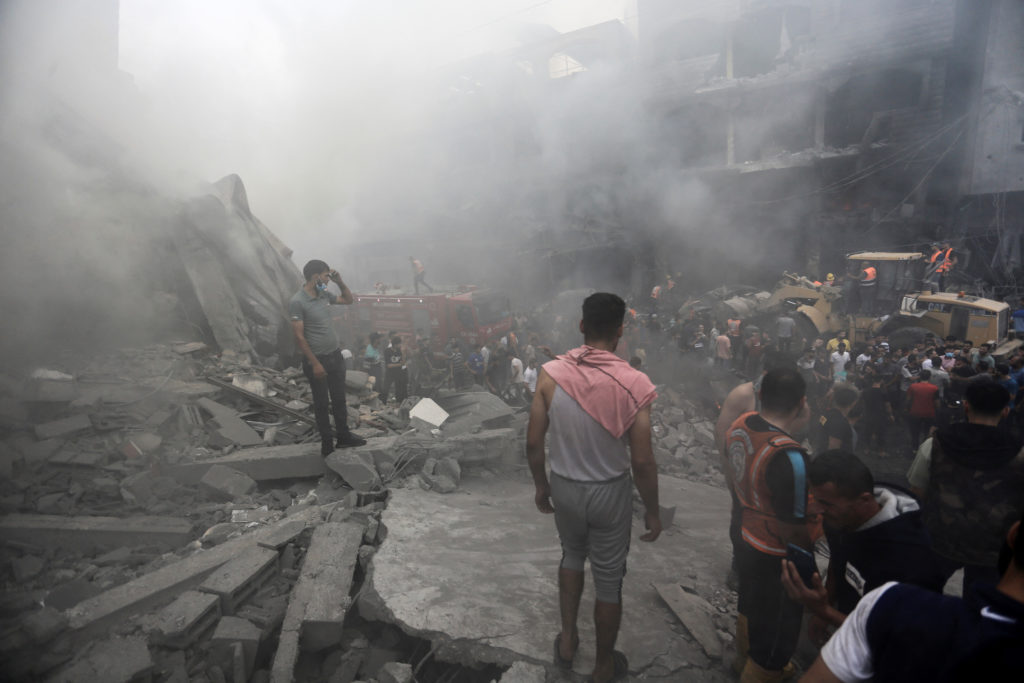CHICAGO (AP) — Illinois leaders went to court Monday to stop President Donald Trump from sending National Guard troops to Chicago, escalating a clash between Democratic-led states and the Republican administration during an aggressive immigration enforcement operation in the nation’s third-largest city.
The legal challenge came hours after a judge blocked the Guard’s deployment in Portland, Oregon.
The Trump administration has portrayed the cities as war-ravaged and lawless amid the government’s crackdown on illegal immigration. Officials in Illinois and Oregon say military intervention isn’t needed and that federal involvement is inflaming the situation.
The lawsuit alleges that “these advances in President Trump’s long-declared ‘War’ on Chicago and Illinois are unlawful and dangerous.”
Illinois Gov. JB Pritzker, a Democrat, noted that around 300 state guard troops were set to be federalized and deployed to Chicago, with an additional 400 from Texas also slated for deployment.
“The American people, regardless of where they reside, should not live under the threat of occupation by the United States military, particularly not simply because their city or state leadership has fallen out of a president’s favor,” the lawsuit states.
Pritzker described the proposed deployment as “Trump’s invasion,” urging Republican Texas Gov. Greg Abbott to intervene. Abbott, however, defended the crackdown, stating it was necessary for protecting federal workers in the city.
White House spokesperson Abigail Jackson emphasized that Trump’s authorizations were a response to what she termed “ongoing violent riots and lawlessness” not addressed by local leaders.
In a parallel action, Chicago Mayor Brandon Johnson signed an executive order preventing federal immigration agents from utilizing city-owned properties for staging enforcement operations.
Recent armed interventions by Border Patrol agents near popular Chicago landmarks have sparked significant concern among residents already unsettled by the intensified immigration enforcement efforts initiated last month.
Meanwhile, authorities in Portland had also secured a temporary restraining order against the deployment of National Guard troops, with a U.S. District Judge expressing skepticism regarding the administration’s rapid decisions following previous rulings.
Overall, with Trump suggesting troop deployments across multiple cities, tensions continue to escalate as local leaders oppose what they characterize as baseless military interventions.






















